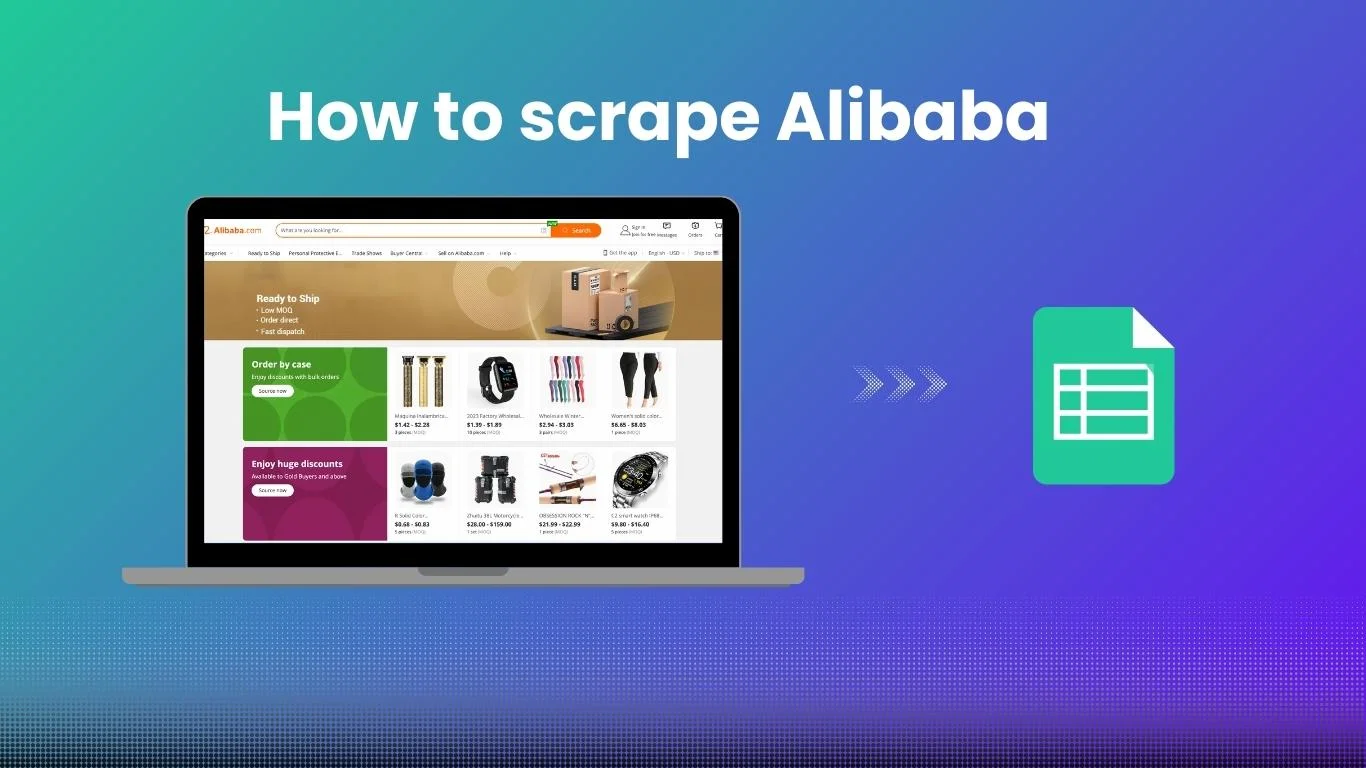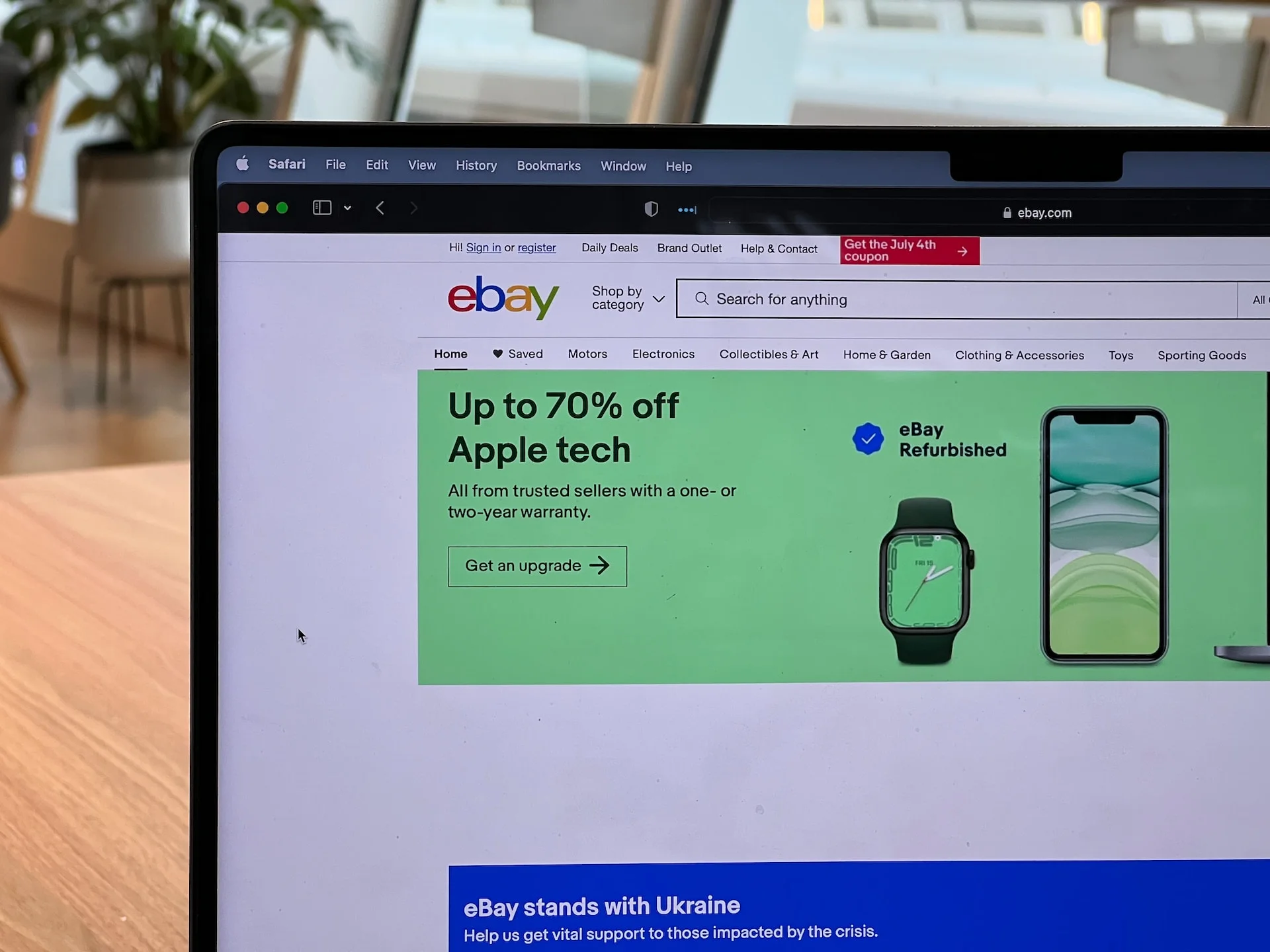If you’re an eCommerce seller, you’ve probably faced issues with finding that very perfect supplier. The solution might lie within Alibaba — one of the largest B2B platforms that allows you to source goods from global manufacturers and dealers.
There are more than 200,000 suppliers in this marketplace. You can find anything from medical devices to fashion accessories there.
But here comes another challenge. Sorting through all the traders and listings can eat a lot of time. On the other hand, you don’t want to rush a decision regarding the source of products for your store.
However, if you’re familiar with how to scrape data from Alibaba to find the best suppliers or discover other insights critical for your business, what you once considered challenging turns into remarkable opportunities.
In this article, you’ll learn how to facilitate the data collection process from Alibaba and be fully equipped to make educated business decisions.
Why is Alibaba data mining important?
Alibaba is a leading retail platform worldwide outperforming such giants as Amazon, JD.com, and other marketplaces. Just think of the volume of Alibaba data analytics you can get as you scrape it. Sellers, product listings, reviews, images, prices… The list of valuable information can be endless.
So, if you’re just about to launch your eCommerce business or would like to tap into new opportunities in the market, you can’t ignore the vast amounts of data buried within this platform.
- Find optimal suppliers. Effectively filter through thousands of potential suppliers. Uncover valuable information such as supplier reliability, product quality, and overall reputation.
- Monitor product pricing. Access a wealth of pricing information to comprehend the market pricing trends, track competitors’ pricing strategies, and consequently adjust your prices accordingly.
- Analyze reviews & ratings. Reveal a supplier’s strengths and weaknesses. This will help you avoid potential pitfalls and ensure a reliable supply chain.
- Track trends. Alibaba’s vast marketplace data is a great source of insights regarding trends in the market. Get to know popular products, new sales techniques, marketing novelties, and more.
- Boost efficiency. Data collection is a repetitive and time-consuming task you can automate with an Alibaba scraper. Automation can lead to 60% saved work time and a 30% increase in productivity.
What types of data can you scrape from Alibaba?
So, what data assets can you extract as you scrape Alibaba? Let’s get into this.
- Product listings: titles, descriptions, prices, images, minimum order quantities, and other product information.
- Sales data: specifics about quantities sold, dates, and regions.
- Suppliers’ data: seller’s location, historical reliability, customer reviews, products available.
- Buyers’ data: preferences, buying patterns, and feedback.
- Search data: search terms, click-through rates, and conversion rates.

How to scrape data from Alibaba to find the best suppliers?
Using Alibaba data mining is one of the quickest and surest ways to get actionable data on reliable product suppliers. Here’s how it is usually done.
1.Identify your needs
Clearly define the specifics of the data you want to get. This may include everything from sellers’ locations, reputation, quantities of products sold, rules for cooperation, and more. If you would like to achieve another goal (like monitoring Alibaba product search data), pick the parameters that align with your objective.
2.Configure your scraper
Set up your scraping tool to target Alibaba’s website. This involves programming the scraper to access the site’s HTML code to extract the relevant data points.
3.Set your filters
Input your parameters into the scraper. Note that they should align with the needs you identified in step one. For instance, if you want to fetch contact details along with other seller information, you may need to learn how to extract mails from Alibaba.
4.Start the scraper
Run your scraper tool. It will navigate the website, extract Alibaba sales data, and organize it based on your parameters.
5.Analyze the data
Once you import Alibaba data, you don’t stop there. Look at the information you fetched. Perhaps, you will need to structure, clean, or transform it to be more usable and visually comprehensible. After this, look for suppliers who meet your defined criteria and have a positive history with their customers.
☝ The process of data scraping is a multifaceted one. It demands expertise in programming, data analysis, and knowledge of relevant legalities.
If you lack these skills, it's better to use professional scraping services. At Nannostomus, we ensure the process is conducted accurately, efficiently, and ethically.
Is it legal to export data from Alibaba?
From a general standpoint, public data available on a website, which is viewable without any login credentials, is typically considered fair game for data scraping. So, in other words, it is legal to export Alibaba data for personal or business use. However, there are some restrictions on the export of certain types of data, such as customer data and intellectual property.
In addition, if you are planning to scrape information from Alibaba, check the laws of the countries involved. For example, the European Union has strict laws on the export of personal data.

So, here are general guidelines for harvesting data from Alibaba:
- Only export data that is necessary for your intended purpose.
- Do not export data that is sensitive or confidential.
- Encrypt the data before you export it.
Given the complexities surrounding this matter, it may be a smart move to hire a professional data scraping service like Nannostomus. We ensure all our practices align with legal standards and ethical guidelines. Thus, we meet your data scraping needs without breaching any laws or policies.
Conclusion
If you grapple with finding a trusted supplier for your eCommerce store or just want to keep up with trends on e-retail, Alibaba is the first source you should think of.
To speed up data collection and ensure you get ready-to-use insights, we recommend considering Alibaba scraping. If you need a reliable and scalable scraping tool or want to get the desired insights hassle-free, Nannostomus is here to help.
Let’s schedule a quick call to discuss how Nannostomus can fulfill your needs.




